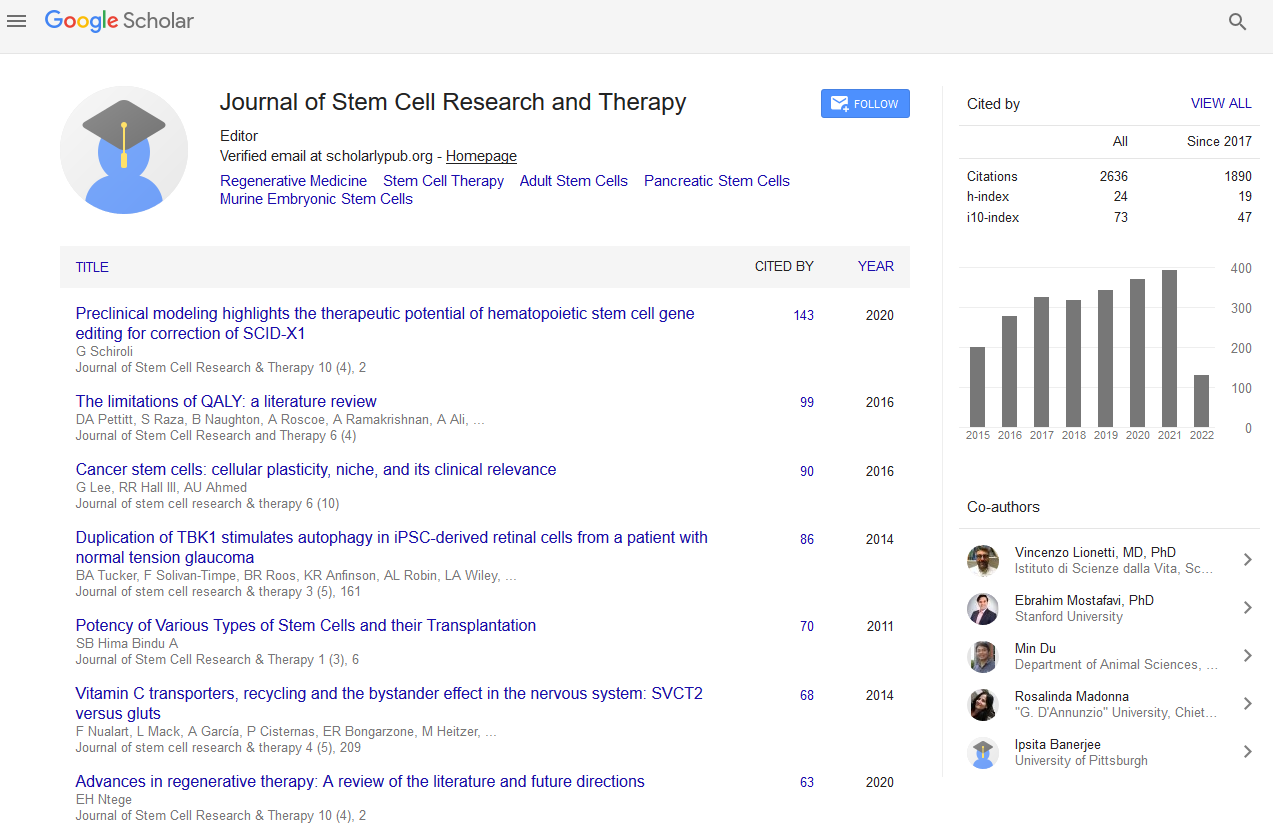Indexed In
- Open J Gate
- Genamics JournalSeek
- Academic Keys
- JournalTOCs
- China National Knowledge Infrastructure (CNKI)
- Ulrich's Periodicals Directory
- RefSeek
- Hamdard University
- EBSCO A-Z
- Directory of Abstract Indexing for Journals
- OCLC- WorldCat
- Publons
- Geneva Foundation for Medical Education and Research
- Euro Pub
- Google Scholar
Useful Links
Share This Page
Journal Flyer

Open Access Journals
- Agri and Aquaculture
- Biochemistry
- Bioinformatics & Systems Biology
- Business & Management
- Chemistry
- Clinical Sciences
- Engineering
- Food & Nutrition
- General Science
- Genetics & Molecular Biology
- Immunology & Microbiology
- Medical Sciences
- Neuroscience & Psychology
- Nursing & Health Care
- Pharmaceutical Sciences
Abstract
Systems and Network Pharmacology Approaches to Cancer Stem Cells Research and Therapy
Irfana Muqbil, Ginny W Bao, Rkya El-Kharraj, Minjel Shah, Ramzi M Mohammad, Fazlul H Sarkar and Asfar S Azmi
The cancer stem cell (CSC) hypothesis is increasingly being accepted as a model to explain for the functional heterogeneity that is commonly observed in solid tumors. According to this hypothesis, there exists a hierarchical organization of cells within the tumor, in which a differential subpopulation of stem-like cells is responsible for sustaining and recurrence of tumor growth. CSCs have been shown to exist in a variety of solid tumors especially those with known resistant phenotypes such as breast, prostate and pancreatic adenocarcinoma (PDAC). In all these models, the commonality of deregulation of three crucial pathways; Wnt, notch and hedgehog that maintain CSC self-renewal capacity is emerging. Collectively these major pathways and have been linked to the observed resistance of CSC to chemotherapy and radiotherapy. The existing lack of knowledge and our incomplete understanding of the molecular signatures associated with CSCs highlight the need for better approaches in both isolation and identification of unique pathways associated with these cells. In this direction, computational biology, especially systems and network approaches, have proven to be of great utility in unraveling pathway complexities such as those associated with CSCs. With highlights on the most up-to-date molecular, network, cellular, clinical, and therapeutic cancer research findings, this article tends to provide a wealth of insights on systems and network biology approaches to CSC marker identification, the mechanism through which they evade treatment as well as therapeutic approaches that will help in conquering these elusive cells in incurable and refractory malignancies.


